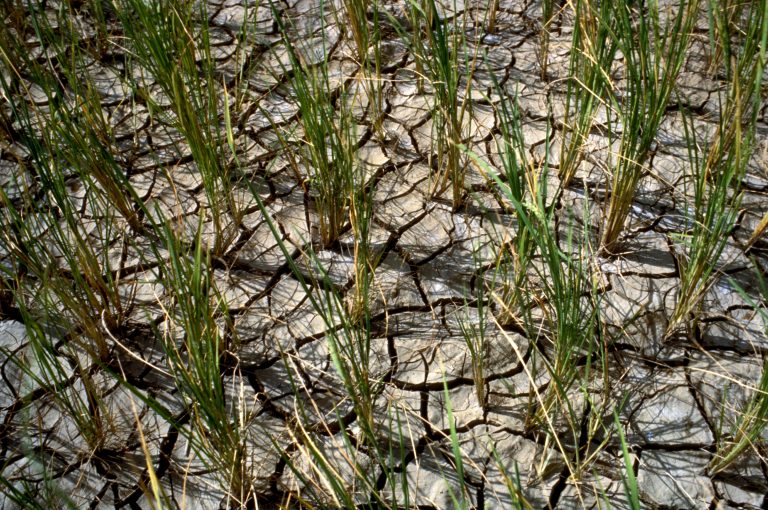| Regional consortium examines initiatives, way forward for rice and climate change agenda in fragile environments |
|
The Consortium for Unfavorable Rice Environments (CURE) moves toward a stronger alliance of scientists and researchers working on unfavorable rice farm environments. This was evident with the active involvement of climate change scientists and the initiatives lined-up to sustain activities around climate change research, capacity building, and resource sharing during the CURE Planning Workshop held on 10 January at the at the International Rice Research Institute (IRRI) headquarters. |
|
Bernadette Joven; IRRI Jan 19, 2017
The rice sector in Southeast Asia is beset with climate-related problems, thus, concerted efforts in tackling this important issue remain vital
Figure: A rice field affected by drought. (Photos by Isagani Serrano, IRRI)
The Consortium for Unfavorable Rice Environments (CURE) moves toward a stronger alliance of scientists and researchers working on unfavorable rice farm environments. This was evident with the active involvement of climate change scientists and the initiatives lined-up to sustain activities around climate change research, capacity building, and resource sharing during the CURE Planning Workshop held on 10 January at the at the International Rice Research Institute (IRRI) headquarters.
In 2016, Southeast Asia’s rice sector was on a low slope as severe drought, salinity, flooding, and the emergence of climate-related pests and diseases affected most countries in the region. These extreme events underscore the importance of beefing up regional collaborations under the consortium mechanism.
“Climate change is a major scientific issue and through science, we should be able to provide solutions and recommendations to relevant stakeholders to position rice science high up on the policy agenda,” said Dr. Bruce Tolentino, the deputy director general for communication and partnerships at IRRI.
CURE is a regional partnership platform composed of 26 national agricultural research and extension systems from Bangladesh, Cambodia, India, Indonesia, Lao PDR, Myanmar, Nepal, the Philippines, Thailand, Vietnam, and IRRI scientists. While CURE focuses on vulnerable environments, such as rainfed rice, climate change adaptation becomes increasingly important for the consortium to sustain high rice production.
Over 30 consortium members and climate change experts, representing seven countries in the region, convened for the planning workshop supported by RICE, the CGIAR research program on rice agri-food system led by IRRI, the CGIAR Research Program on Climate Change, Agriculture and Food Security (CCAFS), and the International Fund for Agricultural Development (IFAD). |
|
|
|
[ Tin tức liên quan ]___________________________________________________
|


 Curently online :
Curently online :
 Total visitors :
Total visitors :



